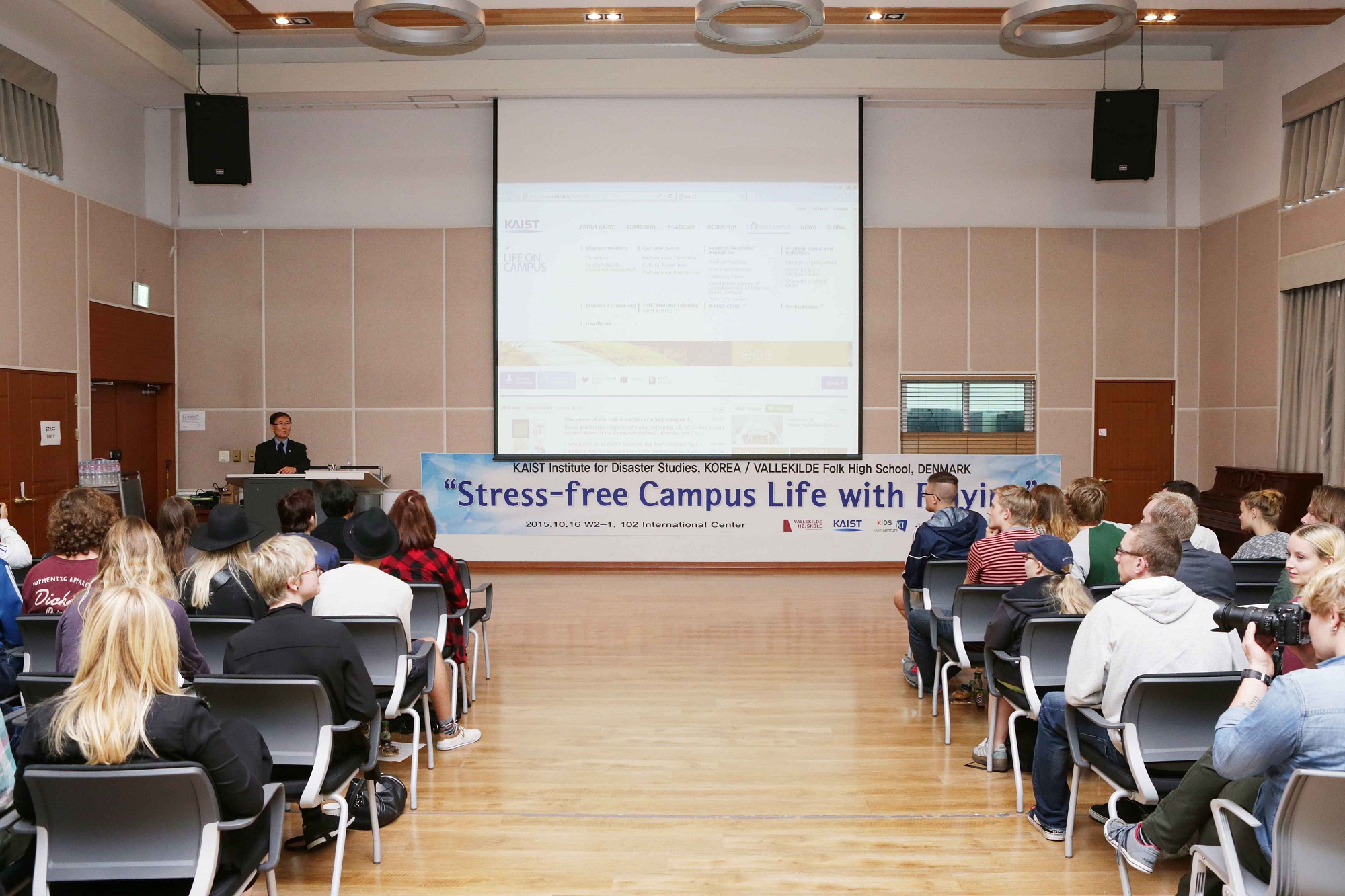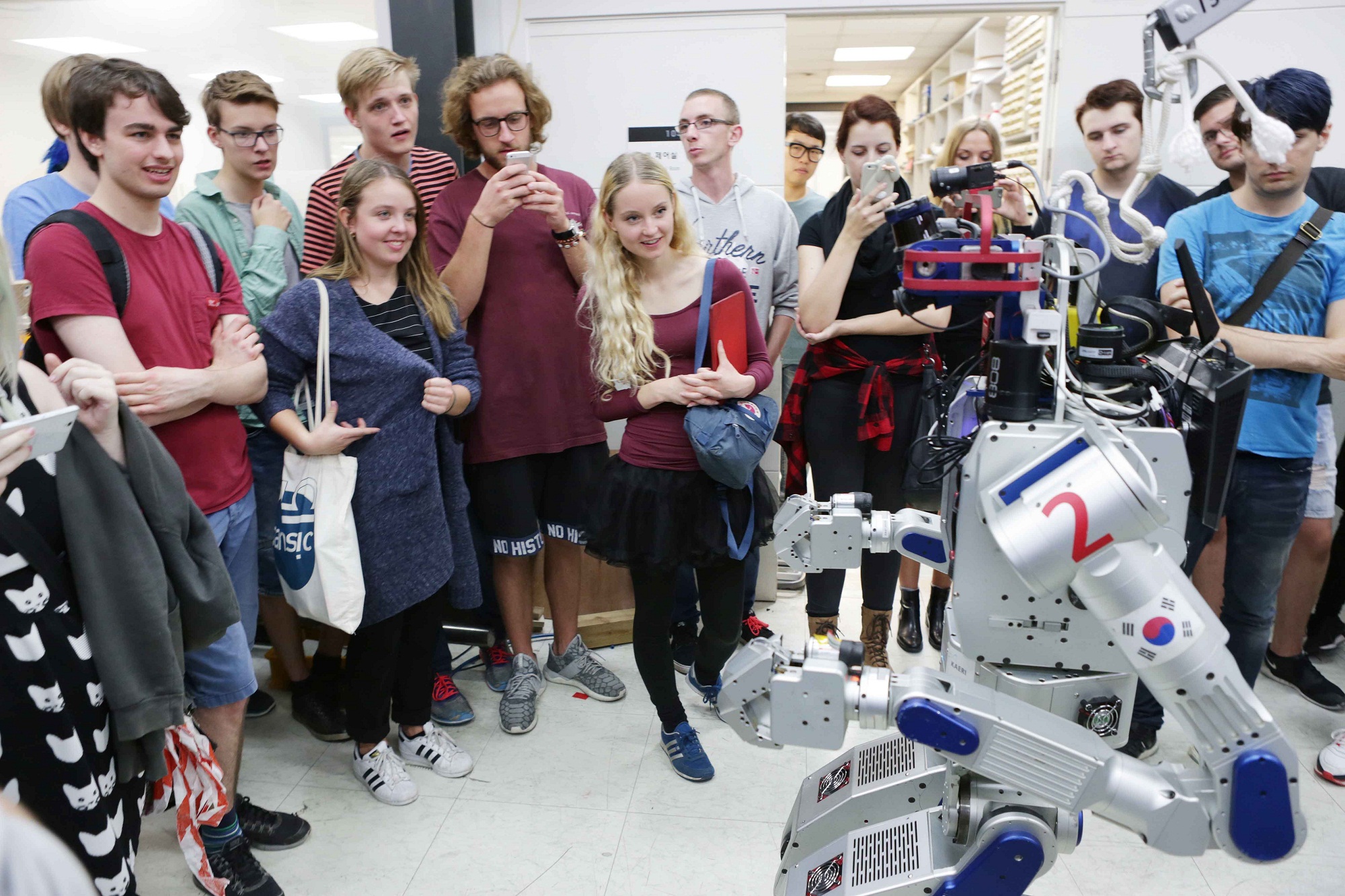event
A group of 60 Danish students and teachers from Vallekilde Højskole, one of 70 Folk High Schools that are spread across Denmark, visited KAIST on October 16, 2015.
The Danish delegation and KAIST’s student organization, the International Conference for the Integration of Science, Technology, and Society (ICISTS), jointly ran a conference entitled “Learning through Having Fun and Games.”
At the conference, the Headmaster of Game Academy at Vallekilde Højskole, Thomas Vigild, gave a lecture on how Vallekilde Folk High School is educating new generations with play, curiosity, and collaboration.
During the conference, KAIST and Danish students held an event called the PlayShop, which was hosted by Headmaster Vigild. At the PlayShop, some 80 students from both institutions enjoyed Danish folk games and shared cross-cultural experiences.
The Danish Folk High School, which dates back to 1844 when its first school opened in Southern Denmark, started as a civic school offering equal learning opportunities to people less fortunate to receive a regular education.
Today, the Folk High School has grown into life-long educational institutions that provide Danish citizens from high school students to seniors with alternative, complementary education that allows citizens to venture out into new fields of their interest or further hone their professional skills and knowledge.
Established in 1865, the Vallekilde Folk High School specializes in journalism, game development, event management, literature, crafts, youth leadership, music and design. Its game development classes at the Game Academy are known for helping students reach their potential through learning from fun games, creative initiatives, and collaborative projects.
The invitation of the Danish school was made possible by Director Heekyung Park of the Institute of Disaster Studies at KAIST.
Director Park said,
“In a sense, I could say that all Danish Folk High Schools are an ideal form of delivering education. They pursue ways to teach students without losing their curiosity and interest in subjects. The schools remove any type of exams from classrooms, while striving to ensure the maximum participation of students in the learning process. KAIST could emulate some of these educational practices to offer its students a classroom free of stress and full of inspirations.”
The Danish delegation toured KAIST’s Humanoid Research Center and the Urban Robotics Lab after the conference.


- No Data